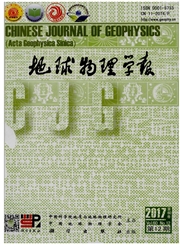

 中文摘要:
中文摘要:
核磁共振(NMR)测井是在高温、高压的极端条件下进行,样品体积小,回波幅度微弱.受到来源复杂的噪声影响,NMR信号通常被淹没在噪声中,测量数据的信噪比较低.提出正则化一启发式阈值算法(Regularization Heursure,R—Heursure)对小波分解后的细节系数阈值降噪,正则化因子的选取与地层孔隙结构和测量数据的原始信噪比相关.通过最大相关系数能量准则选取最优化的母小波函数、消失矩和分解层次,采用正则化因子约束估计的阈值,使选取的阈值恰好能大于噪声水平而不损失小孔(或微孔)的响应信息.数值模拟和实际测井资料处理验证了R-Heursure算法的降噪性能,NMR测井数据的信噪比得以有效改善,为储层评价提供更准确的信息.
 英文摘要:
英文摘要:
NMR logging works under harsh conditions of high temperature and high pressure. The objective volume is usually very small and the echo amplitude is weak. The signal-to-noise ratio (SNR) is low and affected by complicated noise sources. As a result, the NMR signal is usually buried in the noise. Noise suppression is implemented with the proposed Regularization- Heursure (R-Heursure) algorithm aiming at the detail coefficients. The selection of the regularization factor is related to the pore structure characteristics and raw SNR of NMR logging data, which is just above noise statistics level and maintains the information of micro-pore as well. The optimal mother wavelet function, vanishing moment and decomposition level are optimazed based on maximum energy of correlative coefficients. Numerical simulation and case studies with NMR logging data processing show that SNR can be improved effectively with the proposed algorithm.
 同期刊论文项目
同期刊论文项目
 同项目期刊论文
同项目期刊论文
 期刊信息
期刊信息
